Reply To:
Name - Reply Comment
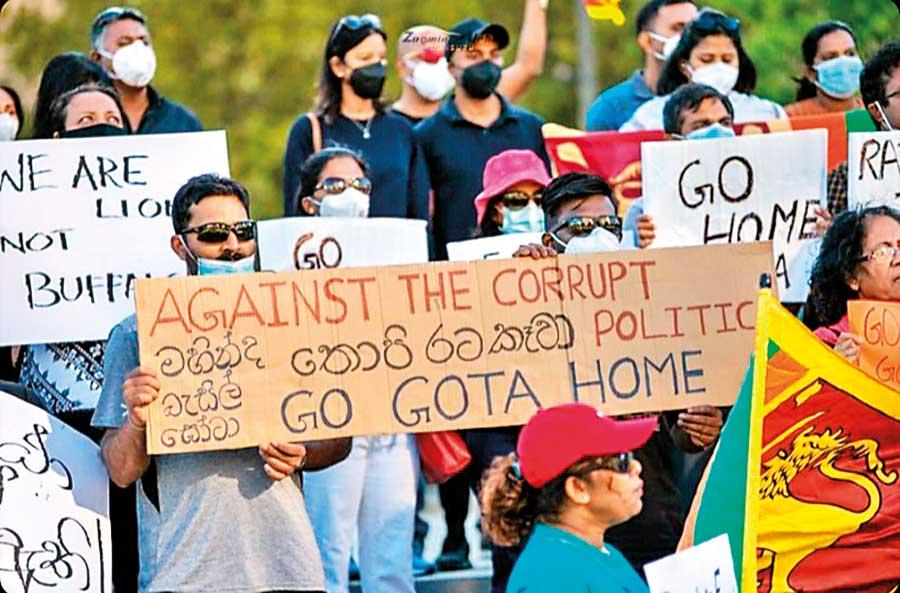
Sri Lankans in Adelaide Protest
On April 3, Sri Lanka was supposed to see islandwide protests against the incumbent President Gotabaya Rajapakse, however the protests could not go ahead as planned due to the 36 hour curfew announced on April 2. While the Sri Lankans in Sri Lanka could not carry out the protests, Sri Lankans living abroad in various countries carried out the protests in their residential countries bringing about global attention to the current crisis situation in Sri Lanka.
hour curfew announced on April 2. While the Sri Lankans in Sri Lanka could not carry out the protests, Sri Lankans living abroad in various countries carried out the protests in their residential countries bringing about global attention to the current crisis situation in Sri Lanka.
when curfew stifled voice of my family, I wanted to protest; Australia
Most of the protestors at the Melbourne protest were those who had voted or influenced their relatives and friends in Sri Lanka to vote for the current President as they had believed his rule would create a better future for the country. “But it clearly is not the case and so many people are being harassed and the right to their human rights, even basic needs such as food, gas are being taken away. We believe that standing up for our fellow Lankans back home whose voices have been muted was what brought us together,” shared Melbourne based Helani, who participated in a protest in Melbourne.
Another protestor in Adelaide shared similar thoughts. “I have family back home and it was disheartening to see what was happening but when the curfew came in, stifling their right to protest- we thought it was upto us to be their voice and protest on behalf of them.”
Sri Lankans in Tasmania, which probably has the smallest Sri Lankan community among the states in Australia were able to organize a protest in less than 24 hours. “As a person living abroad, we can help the people in Lanka. We can and should take it global. We want to help however we can because we felt helpless for our people. Felt their pain. Shutting people down from their basic rights? Not being able to freely speak? You can’t watch that happening. So we decided and started reaching out to the Sri Lankan community here and organized the protest,” shared Tasha, one of the organizers of the protests.
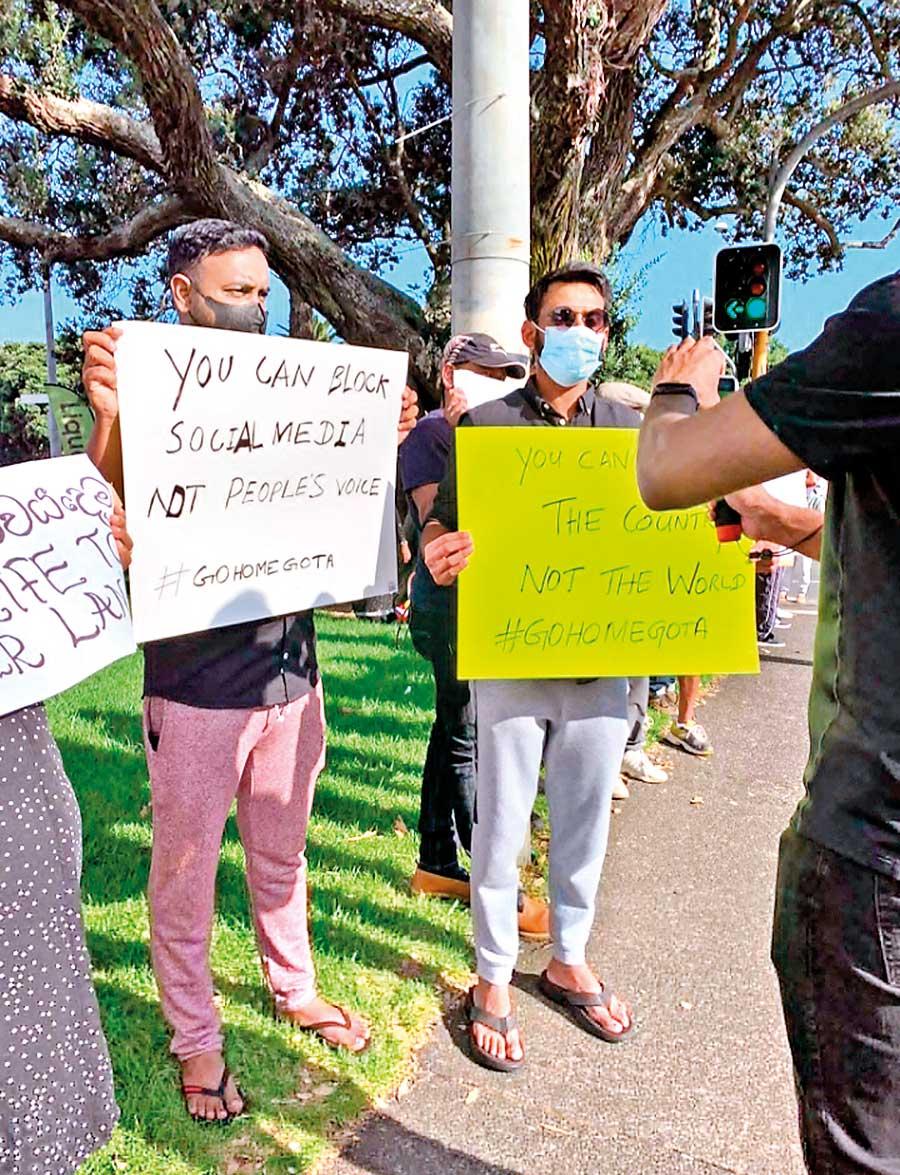
In Auckland, New Zealand
power to all those genuinely fighting in lanka ; New Zealand
Zahra* was horrified at the happenings in Sri Lanka and believed that the only way she could help her fellow Lankans back home was to protest on behalf of them. “No matter where we go in the world, we are still Sri Lankans. Whatever that happens back home affects all of us and I just could not stay silent anymore. I hope that with what we have done, it gets better at least a bit.”
Nifraz, another protestor shared that he was frustrated and worried and wanted to show solidarity with his fellow Sri Lankans home. “The protest at Auckland had around 600-700 people and was organized by the Sri Lankans living here. I believe we will come back even stronger, Sri Lanka and more power to all those genuinely fighting for the betterment of the country. We love you all.”
wonder whether there will be a Sri Lanka left for me to come back ; USA
Sumalimina, a postgrad student in the USA has family residing in Sri Lanka. “My mum is struggling to find the medicines she needs daily and whenever she finds them, the inflation has doubled the price of them. She is also not able to stand in queues for hours due to her ill health and sourcing all essentials have become a mission. I feel upset, mad and anxious for the future of Sri Lanka. These days I get anxious wondering whether there will be a Sri Lanka left for me to come back to.” As she was one of the organizers of the protest, she felt like it was the only way that the plight could be raised to be seen by the global community and that it was her way of showing her Sri Lankan family and friends that she has not abandoned them.
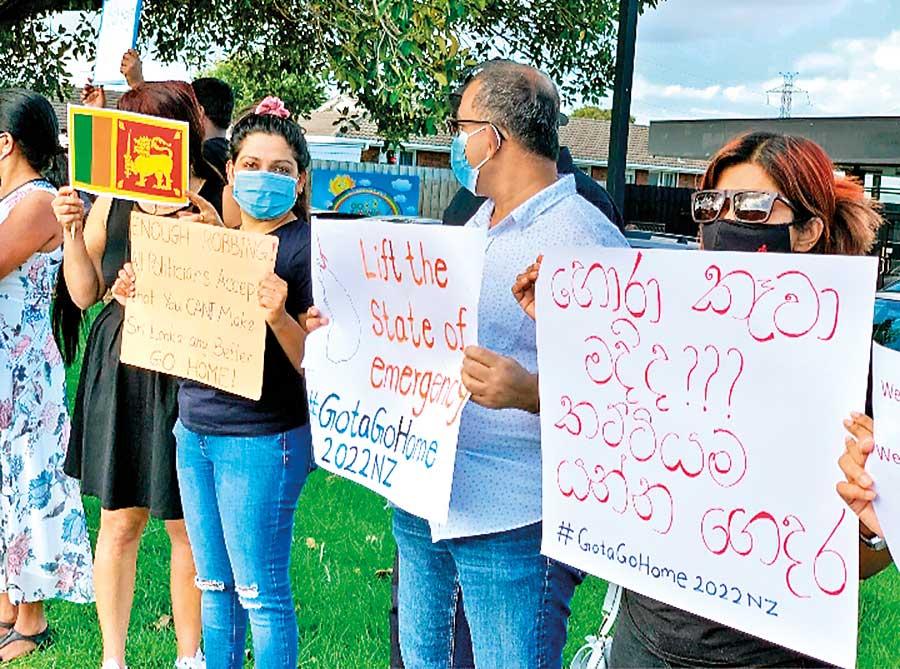
Protestors in Auckland
Protest with Art
While peaceful protests were happening internationally; on 2 April, Fearless Collective, a South Asia based public arts collective held a protest art workshop in Colombo making it probably the first ever arts based resistance seen recently. Bangalore based artist, Shilo Shiv Suleman, started off Fearless Collective, a South Asia based public arts project, in 2012 in response to the Nirbhaya gang rape case in India. “Following the incident, powerful protests were seen across India but something I noticed was that the rage that we had towards the incident was also seen in the slogans and posters held by protestors. Rage is powerful but the posters and slogans embodied a violence that spoke to an invisible audience.” Shiv Suleman believed that art was a medium which could be used to bring out the needs of protestors in a non-violent yet impactful manner.
Having travelled to Colombo last week to work on two street murals with We are From Here Project and Sisterhood Initiative, Shiv Suleman and her team at Fearless Collective found themselves working amidst a crisis in Sri Lanka. Coming from a region with political upheaval and similar crises, the team at Fearless Collective could understand the woes of the Sri Lankan people.
“Very often in protests we know what we don’t want but we don’t know what we want. But through creating protest posters using art, we try to use affirmative images and slogans to figure out what it is that we really want,” shared Shiv Suleman.
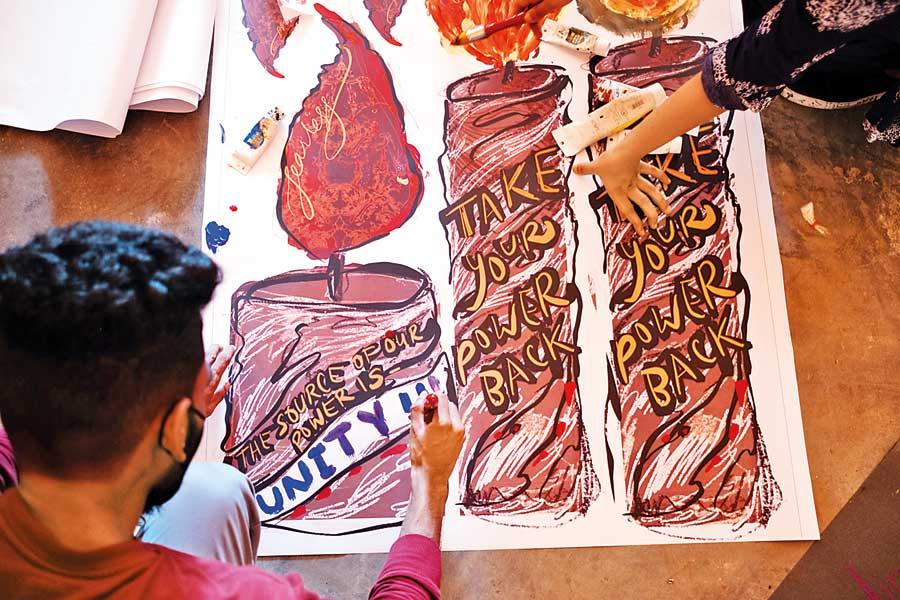
Posters that were created
The colourful protest posters that were created at the workshop were based on the slogans of “The source of our power is…” and “Take back our power”. Shiv Suleman explained that people should understand the source of their power and affirm that they have the power in the country, rather than anyone else. “When we work collectively, we are so powerful that people in power are scared of us- the protestors on the streets. They are also scared of the art we create. Because it speaks to them of what we want and it tells them that we realize the power we hold,” added Sabika Abbas Naqvi, a gender rights activist and one of the members of Fearless Collective.
The posters that were created at the workshop were put up across Colombo and some were taken to the silent protest held at Vihara Mahadevi Park on the day. Since the posters will be on the streets of Colombo, Fearless Collective believes that it will be a lasting reminder for the people to understand and realize the extent of their power.
Shiv Suleman also pointed out that in South Asian history, art has always been part of protests as people have come forward to protest using art, public performances, poetry and posters. “Through art, we create a culture of unitedness, solidarity, understanding and articulating what we want. With our art, we hope to not just till the soil but also sow the seeds.”
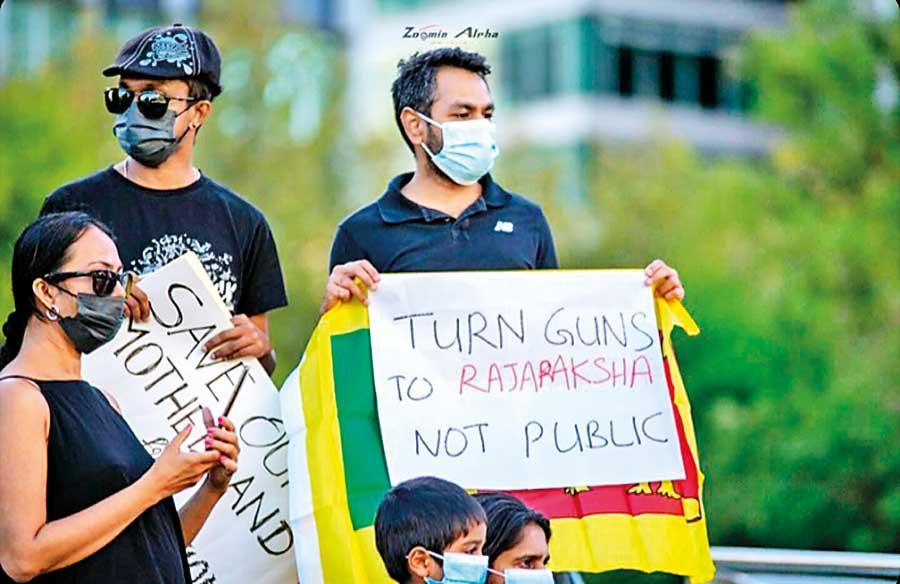
Frustrated protestor in Adelaide
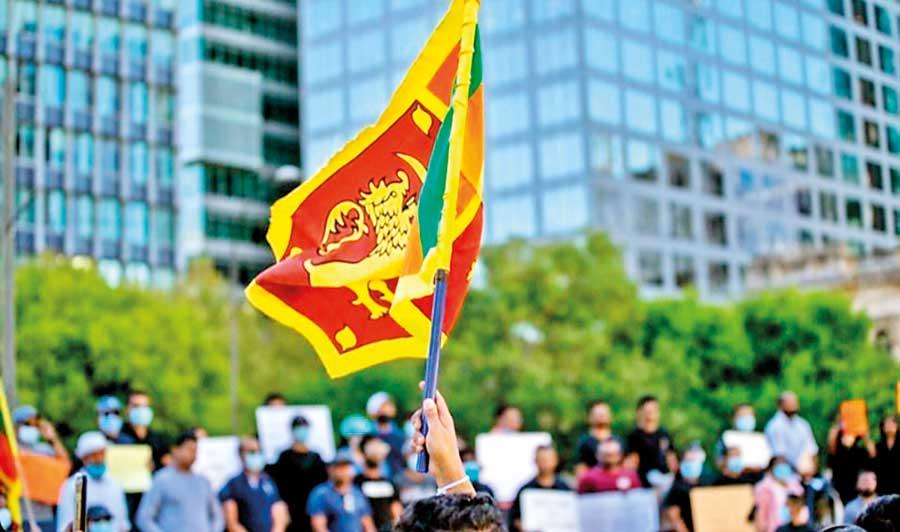
Protest in Adelaide
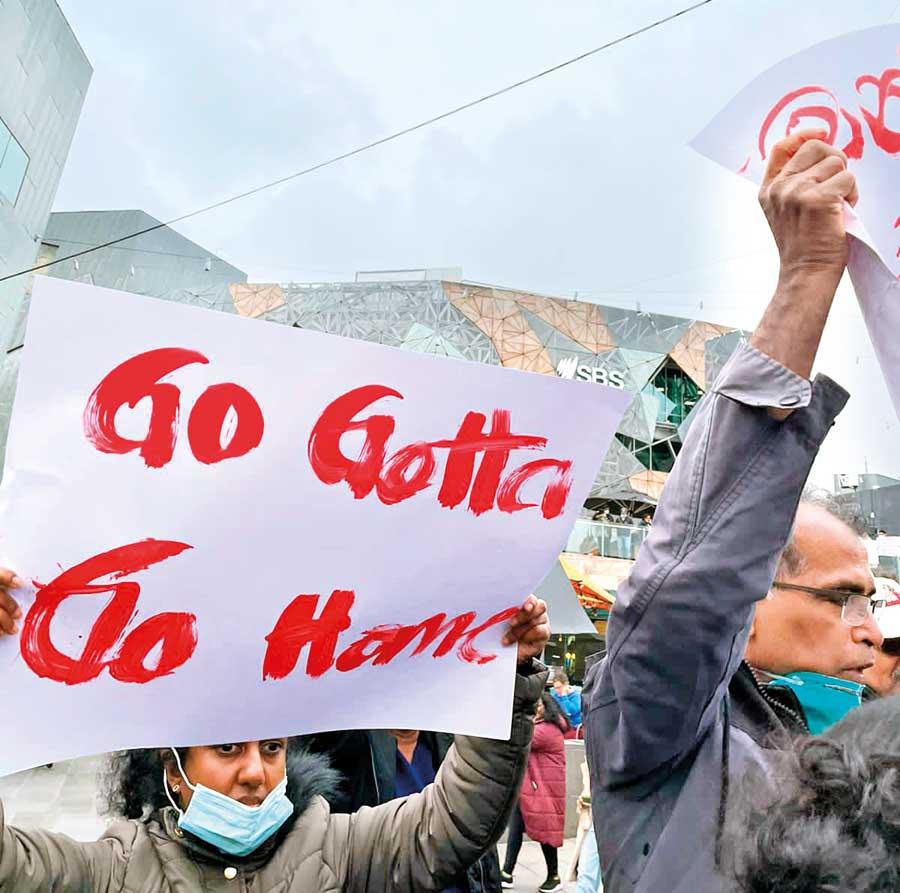
Protestors in Melbourne
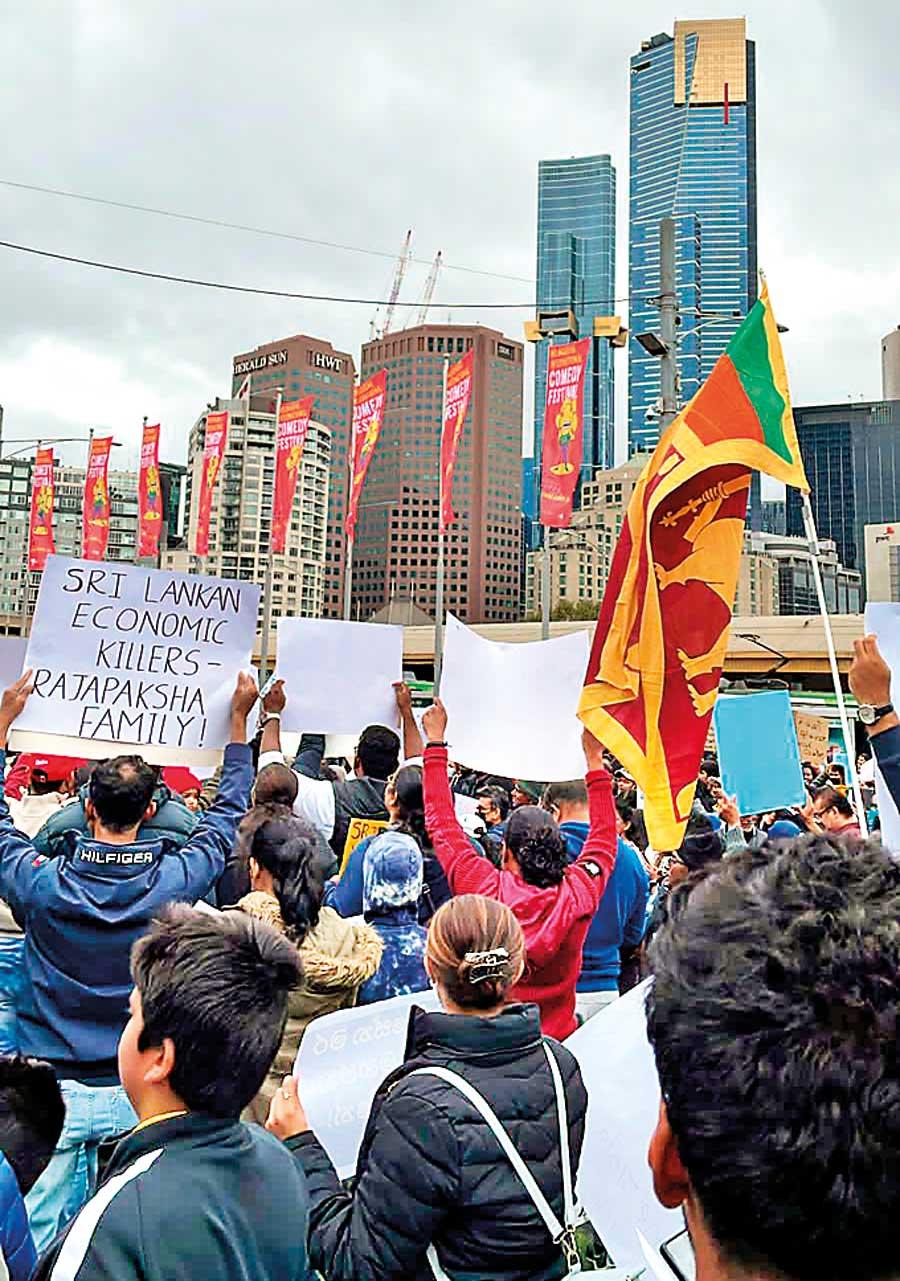
Protests in Melbourne